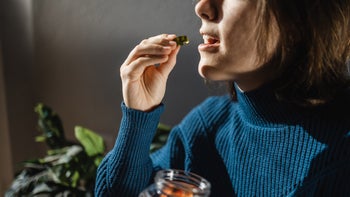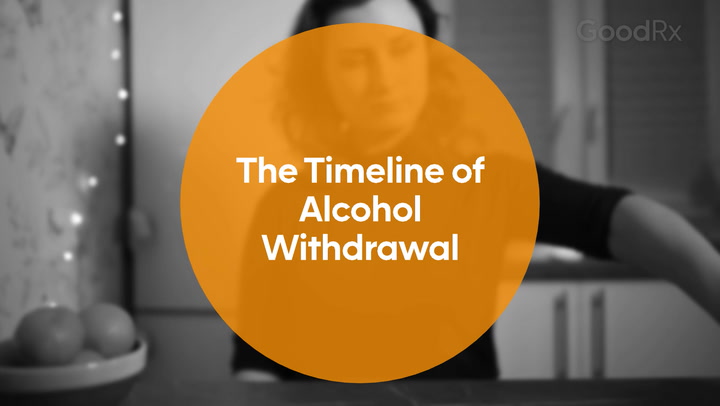
What Does Alcohol Do to Make You Drunk? How Booze Affects the Body and the Brain
Key takeaways:
Alcohol is made up of small molecules that easily dissolve in the fat, water, and cells in your body.
Your liver processes alcohol, but alcohol affects other organs too, such as the stomach, pancreas, and brain.
Alcohol makes you feel intoxicated because of the way it affects the brain. When alcohol enters the brain, it changes the way that brain cells function.

You might be curious about what exactly alcohol is made of. You might also wonder why alcohol makes you drunk. In this post, we’ll give you a clearer picture of the process.
We will first describe what alcohol actually is. We will then discuss how your body processes it and how it causes intoxication. Finally, we will touch on safer drinking practices and how to sober up after drinking.
What is alcohol made of?
Ethanol, or ethyl alcohol, is the type of alcohol that we drink. The process of making ethanol is called fermentation. This process uses yeast to convert sugar into ethyl alcohol.
Search and compare options
For example, fermented sugar in grapes is used to make wine. And fermented sugar in potatoes is used to make vodka.
What part of the body processes alcohol?
The liver is the organ that does the most metabolizing, or processing, of alcohol. At the same time, other organs in your body do some processing of alcohol as well. These include the:
Stomach
Small intestine
Pancreas
These organs all have special enzymes that break apart the alcohol molecule and allow the body to get rid of it.
The first step of alcohol breakdown releases a toxic molecule, called acetaldehyde. This is the substance that actually damages our cells and tissues. And it is the reason that alcohol consumption increases the risk for various health conditions. The more alcohol that a person consumes, the greater their risk.
In the second step of alcohol metabolism, the body breaks the acetaldehyde molecule down into water and carbon dioxide. This makes it easier for your body to eliminate it.
Read more like this
Explore these related articles, suggested for readers like you.
How does alcohol move through the body?
Alcohol (ethanol) is a small molecule. This means it can fit through tiny holes in the outer layer of our cells. That allows it to enter the cells in the body and make changes to them.
Alcohol also dissolves in fat and water. The outer layer of our cells contain fat and thus allows alcohol to enter. And, because our bodies are 60% water, this means alcohol can travel to all parts of the body. Next, we cover how that happens.
After you take a drink, the alcohol first enters your stomach. And the amount of food in your stomach affects how the alcohol gets absorbed.
If there is food in your stomach, the stomach acid that is digesting that food will also start to break down the alcohol. The alcohol is then absorbed into your bloodstream from there.
However, if you drink on an empty stomach, most of the alcohol goes to the small intestine. The small intestine has a much larger surface area compared to the stomach. So the bloodstream can absorb alcohol faster from your gut compared to from your stomach. This is why you feel drunk faster if you drink on an empty stomach.
Once your blood cells absorb the alcohol, the bloodstream carries it to your liver, brain, and other parts of your body.
How does alcohol cause intoxication?
Alcohol makes us feel drunk, or intoxicated, because of its effect on the brain. The blood-brain barrier is a group of cells surrounding the brain that protects it from invaders such as toxins and bacteria. However, because alcohol dissolves in water and fat, it can easily cross this barrier.
Once alcohol enters your brain, it attaches itself to gamma-aminobutyric acid (GABA) receptors. Receptors are like little docking stations in the brain. GABA is a chemical that works to slow down the brain’s processes.
When alcohol binds to these receptors, it slows down brain function. This is why you feel more relaxed and calm.
The more alcohol you drink, the more alcohol there is in your blood. The higher the blood alcohol concentration (BAC) you have, the greater the impact it has on your brain. That is why as you drink more and more alcohol, the harder it is to function.
The impact of alcohol on the brain can cause:
Slower reaction times
Slower thought processes
Loss of motor control
Slurred speech
Lowered inhibition (people may say and do things they would not normally do)
With chronic drinking, the number of GABA receptors in the brain increases. As a result, people need to drink more and more alcohol to feel the same levels of relaxation. This is also known as tolerance.
How does alcohol affect the body?
No amount of alcohol is safe, but the body can handle some alcohol — so long as it is consumed in moderate amounts and spread out over time. The liver can process one standard alcoholic drink per hour. This would be equal to one beer or one shot of liquor.
In addition, it’s recommended that men drink no more than two drinks per day and women drink no more than one drink per day. This helps to lower health risks associated with alcohol consumption.
If you drink too fast or drink excessively, you are giving your body more alcohol than it can keep up with. This means more alcohol will remain in the blood and enter the brain. This can greatly increase risk of alcohol poisoning, or overdose.
How to sober up from alcohol
Knowing what alcohol does in your body might make it easier to remember how you sober up from alcohol. It can also make it easier to remember to use safer drinking practices.
Once alcohol is in your body, the only thing that will make you sober, or bring your BAC to zero, is time. Once the alcohol is in your system, your body takes the time it needs to break down and get rid of the alcohol.
Safer ways to drink to help keep your BAC low include:
Drinking less
Eating before drinking
Spacing out your drinks over more time
The bottom line
Various parts of your body play a role in processing alcohol. Your body sees it as a toxin. That is why it works to break down the alcohol molecule and eliminate it. As it does so, it releases a toxic substance called aldehyde, which can cause damage to the body’s key organs over time.
In the brain, alcohol acts as a depressant, slowing brain responses. This is what causes the feeling of being “drunk.” Using safer drinking practices can help your body process the alcohol you drink and avoid severe intoxication.
If you or someone you know struggles with substance use, help is available. Call SAMHSA’s National Helpline at 1-800-662-HELP (4357)) to learn about resources in your area.
Why trust our experts?


References
Ahmed, S., et al. (2021). Biochemistry, lipids. StatPearls.
The Alcohol Pharmacology Education Partnership. (n.d.). How is alcohol absorbed into the body? Duke University.
The Alcohol Pharmacology Education Partnership. (n.d.). What is alcohol? Duke University.
Centers for Disease Control and Prevention. (2022). Alcohol basics: Frequently asked questions.
Department of Health. (2019). What is alcohol? The Commonwealth of Australia.
LaHood, A. J., et al. (2021). Ethanol toxicity. StatPearls.
Substance Abuse and Mental Health Services Administration. (n.d.). SAMHSA's national helpline.




























